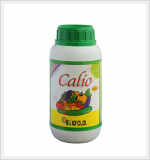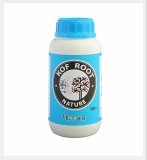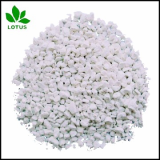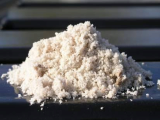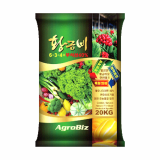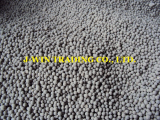Kof Erectness
Negotiable Min Order Quantity Unit
- Required Quantity
-
- Place of Origin
- Payment Terms
- Negotiable
- Production method
- Negotiable
- Shipping / Lead Time
- Negotiable / Negotiable
- Keyword
- Category
- Other Fertilizers

KOF Co., Ltd.
- Verified Certificate
-
17


| Product name | Kof Erectness | Certification | - |
|---|---|---|---|
| Category | Other Fertilizers | Ingredients | - |
| Keyword | - | Unit Size | - |
| Brand name | - | Unit Weigh | - |
| origin | Stock | - | |
| Supply type | - | HS code | - |
Product Information
WHAT IS 'KOF ERECTNESS'?
KOF ERECTNESS is an essential element for mono-cotyledonous plants including rice, sugar cane, wheat, turf and corn. Silicate moves into plant body along with water in response to transpiration, whereby water is increased, and most of the silicate are accumulated in epidermal cell. Once the silicate is accumulated in the epidermal cell, and the silicate becomes immobile and absorbed into the epidermal cell to make stems and leaves silicified, whereby excessive transpiration is prohibited to promote photosynthesis, and resistance to diseases, insects and disasters is enhanced.
Efficacy of KOF ERECTNESS
- Lodging is prevented, form of light-intercepting system becomes better and amount of harvest is increased.
- Transpiration is prohibited to promote photosynthesis.
- Head rice ratio is increased to enhance the eating quality of cooked rice.
- Resistance to environmental stress and meteorological disasters is increased.
- Generation and emission of ethylene are reduced to alleviate aging of leaves and to prolong life of leaves.
- Decomposition of pesticides, heavy metals and fertilizer composition in soils is promoted
Caution
- No excessive use is prohibited.
- Keep KOF ERECTNESS in air-tightness after use, and keep it out of reach of children.
- Dilute KOF ERECTNESS first when mixing with other products.
Usage
1. table
| Name of crops | Application time | Dilution rate | Effect | |
| Gramineae | Rice Wheat Barley Corn |
All growth stages | 1,000 dilution rates 20ml / water 20L |
|
| Sugar cane | ||||
| Turf |
|
|||
| Vegetables | Oriental melon, water melon, tomato, cucumber, pepper, paprika, strawberry, pumpkin, cabbage, garlic, Chinese chive, onion, etc. |
|
||
2. Drenching of flooded paddy soils: 3L / acre
What is Potassium Silicate Fertilizer?
- Silicate is hardly an indispensable element for plants, but very important element for mono-cotyledonous plants including rice. The silicate is moved into plant body along with water by transpiration, where water is transpired while the silicate is mostly accumulated in epidermal cell. Thus, a large amount of silicate is distributed on tissue surfaces of leaf blades and rice husks, and once the silicate is deposited thereon, silicate stays thereon. Absorption of silicate in large quantity rigidly serves to rigidly silicify stems and leaves, whereby excessive transpiration is effectively prohibited to promote photosynthesis, and resistance to diseases, insects and disasters is advantageously enhanced. Use of potassium silicate fertilizer increases head rice ratio and decreases amylose and protein contents to thereby enhance the eating quality of cooked rice in comparison with use of chemical fertilizers only.
| Treatment | Head rice ratio (%) | Protein (%) | Amylase (%) | Palatability (NIR) | |
| Unpolished rice | Polished rice | ||||
| N,P,K+silicate | 76.9 | 76.8 | 8.54 | 47.6 | 35.1 |
| N,P,K+compost | 69.4 | 75.0 | 9.03 | 18.2 | 33.9 |
| N,P,K (comparison) | 70.8 | 73.3 | 9.12 | 17.9 | 29.4 |
Biological Activity Promoting Function of Rice
The silicate is largely distributed in intercellular spaces of roots and epidermal tissues of plant body, and also exists in DNA and RNA of energy photosynthesizing organs in organelle.
The silicate is a water-saving and drought-resistant eco-friendly fertilizer resource via water transpiration inhibition by 30% in rice cropping that needs a large quantity of water in terms of water economy including water retention capacity in plant cells and water transpiration inhibition. Accumulation of silicate in plant opal would increase a physical strength and serve to make erect or thick types of leaves, advantageously acting to photosynthesis.
Particularly, the silicate functions to broaden the narrow or long leaves in gamineae, and to significantly thicken the broad or round leaves in dicotyledones.
Furthermore, the silicate reduces nitrogen volatilization generated in the course of plant metabolic process and leaf erectness process, and generation and discharge of ethylene which is a chlorophyll-destructing hormone, whereby leaf aging is reduced to significantly prolong life of leaves.
Tolerance Enhancing Function to Environmental Stress
Enhancement of tolerance to environmental stress for plant body increases tolerance of plant per se, tolerance to meteorological disasters caused by natural environment, and tolerance to various contamination damages artificially caused in the course of crop cultivating process. The silicate alleviates damages by enhancement of tolerance to environmental stress due to physiochemical property of silicate component itself, and biochemical characterization of plant body itself enabling to have the tolerance.
As seen in healthy plant individuals, the tolerance of plant body can be easily noted from silicate -used package that if the roots become healthy, growth of the aerial parts becomes fully vital, with less damage from environmental stresses, and immune function of recovering from damages is promoted.
Furthermore, the disease/insect repellent function, unlike the toxicity of chemicals, helps tissues of plant body to be healthy and provides disadvantages to diet preferences of insects, whereby proliferation of diseases and insects can be inhibited to thereby reduce damages caused therefrom.
Most of the insects penetrate plant roots from soils, if habitat environments are improved, such that the silicate in roots functions as breakwater interrupting the diseases and insects, and promotes enzymic activity in relation to resistance to diseases and insects like chitinase, providing an effective contribution to seedling culture and water culture.
The damages by diseases and insects that penetrate through stomas from air can be reduced by reinforced epidermal tissues of plant body, prohibition of transpiration from epidermal water and decreased attachment of water on epidermis, and insect-extermination function can be carried out by worsening habitat environment through reduced nitrogen components which are nutrients to microorganisms among guttations attached on leaf surface by being oozed out from plant body.
The function in silicate of alleviating the meteorological disasters allows having tolerance to high and low temperature damages due to semiconductor characteristics of silicate, and allows having tolerance to excessive water and drought due to shrinkage of cells and improved expansion of cells.
The function in silicate of alleviating hyperactivity disorder prevents toxicity and heavy metal excessive absorption from chemicals including pesticides, agricultural chemicals and fertilizers largely due to silicate's strong absorption power in soils, and reduces damages by restoring physiological activity of roots. Particularly, silicate is excellent in effect of reducing damages from environmental stresses related to respiratory metabolism in physiological function of plants and from environmental stresses including temperatures, light and water.
Tolerance response in the plant body to these environmental stresses may be exhibited by measuring flow of electricity in the plant body.
It can be easily determined that flow of electricity in silicate applied and cultivated plant body is stably maintained and there is tolerance to environmental stress over plant body applied with no silicate
B2B Trade
| Price (FOB) | Negotiable | transportation | - |
|---|---|---|---|
| MOQ | Negotiable | Leadtime | Negotiable |
| Payment Options | Negotiable | Shipping time | Negotiable |

- President
- Dong Hun, Heo
- Address
- 487-1, Ganghak-ri, Wachon-myeon, Gyeongsan-siGyeongsangbuk-do,
- Product Category
- Other Fertilizers
- Company introduction
-
KOF(Korean Organic Fertilizer) specializes foliar fertilizer.
KOF (Korean Organic Fertilizer) is a fully integrated company that is responsible for every stage of its operation from foliar fertilizer developing, manufacturing, selling, marketing, and distributing.
We devoted with all our hearts to develop high concentration products totally water soluble.
Products of KOF are not only selling nationwide in Korea, but also exporting to Eruopean countries, South eastern countries, middle east, and East Asia.
- Main Markets
-
 Poland
Poland
 Taiwan
Taiwan
- Main Product


































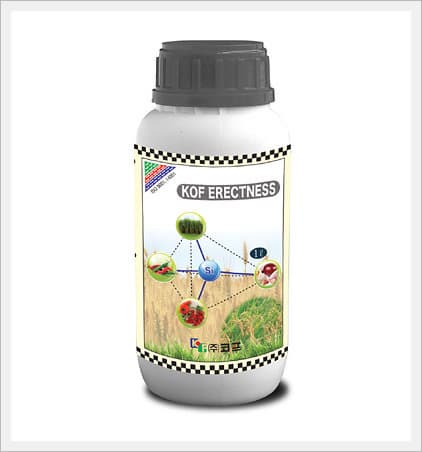
 South Korea
South Korea
